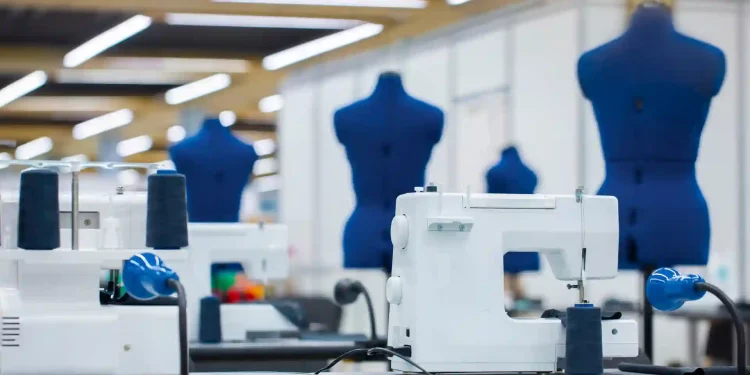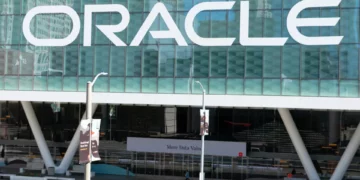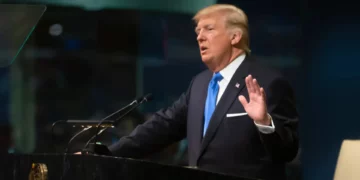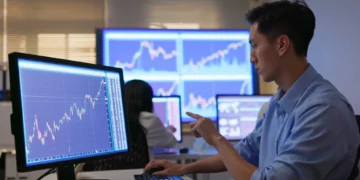Popular brands like Zara and Bershka are owned by Inditex and are buyers for a majority of the textile exports from Morocco.
Morocco is witnessing a surge in textile orders, especially for corporate clothing and knitwear from the Northern Europe region. It is a sigh of relief for the workers and traders after taking up the loss due to the pale demand since last year’s winter.
Fatima-Zohra Alaoui, director general of the Association Marocaine des Industries du Textile et de l’Habillement (AMITH), said that a customer slowdown led to a fall in orders from the buyers, making them wait and watch the future unfolding.
Since the beginning of this January, orders started pouring in. AMITH is a Moroccan textile association that depicts the whole textile industry of the North African country. It consists of more than 1,200 companies collectively employing 200,000 plus workers.
An estimated 60% of Moroccan exports are packed for Spain, among which most are designed for a Spanish company, Inditex. Popular brands like Zara and Bershka are owned by Inditex and are buyers for a majority of the textile exports from Morocco.
The last quarter of 2022 made companies suffer from low demand. Inditex, H&M, and other similar popular clothing brands faced the heat of lowered consumer spending. European inflation seemed to be bound for space. Consumers turned to spending on essential items and delaying the purchase of secondary items.
The ripple effect of global warming was that winters were less chilly, pushing away consumers from buying new collections of cardigans. Several brands and large retailers had already stocked up their warehouses, hence slowing down orders.
Alaoui said that Morocco has the leverage of being a neighbour to the Europeans, which makes it easier for brands and retailers to give flexible and smaller orders to Morocco, according to the demand flow and consumer spending.
Alaoui has identified two significant trends for an increased demand for cardigans and corporate garments from Northern European and Scandinavian consumers. Moroccan manufacturers were flooded with such orders for tailored knitwear, woven pants, and suits. The demand for knitwear especially increased at the time of the pandemic, when most consumers wanted to wear clothes that were warm and comfortable while spending their free time or working from home.
Future Technology
Alaoui started with AMITH back in 2016, and months later, the Moroccan textile industry started investing in new-age technology for better sustainability and work in an environment-friendly setup. They made investments in laser, ozone, and eFlow technology to save water wastage during the apparel production process. Moroccan authorities and AMITH are taking steps to make the whole industry’s supply chain greener.
Alaoui expressed concern that Morocco has an absence of a larger fabric and yarn industry, which pushes them to import more than 80% of their raw materials. This leaves a larger carbon footprint on the planet. So the textile industry is working in association with the government to build its indigenous yarn facility in a greener manner in eco-friendly industrial zones.
The North African country is amongst the world leaders in power generation through renewable sources, especially solar and wind. The textile industry is taking steps to monetise this power to run greener technological investment projects of reduced water consumption, manage textile waste, and recycle water. This would make the Moroccan textile industry a model for the world.
Foreign Investments
The textile industry has made a substantial contribution to the Moroccan economy. As per the government records, their textile exports were worth $4.06 billion in 2021, with the majority of exports bound for Europe and the United States. Still, the industry lacks foreign direct investment (FDI) and runs 98% of its businesses in the Moroccan capital.
Alaoui said that they are attracting foreign investors to Morocco. They want to boost investments for both domestic and foreign investors. They primarily want a joint venture program because they want appropriate sharing of knowledge, not just monetary aid.
Alaoui added that they are attracting foreign investment into the upper levels of their textile supply chain to transform their technology and rebuild a substantial part of the value chain. The FDI could prove to be a game changer in the printing, dyeing, and finishing of the garments to provide better value to the end consumer.
Valerius Texteis, a Portuguese textile company, has signed a memorandum of understanding (MoU) with the Moroccan government for 1 billion Moroccan dirhams ($97.98 million). This would provide significant assistance in the development of the textile industry. They will generate employment for 1,500 workers in their textile recycling project in Morocco.

















